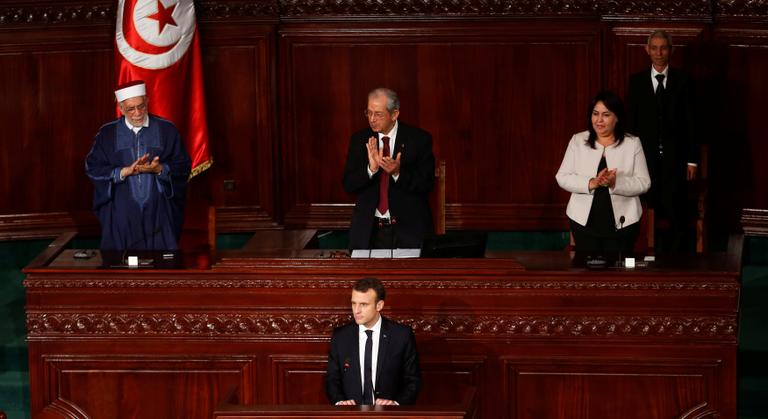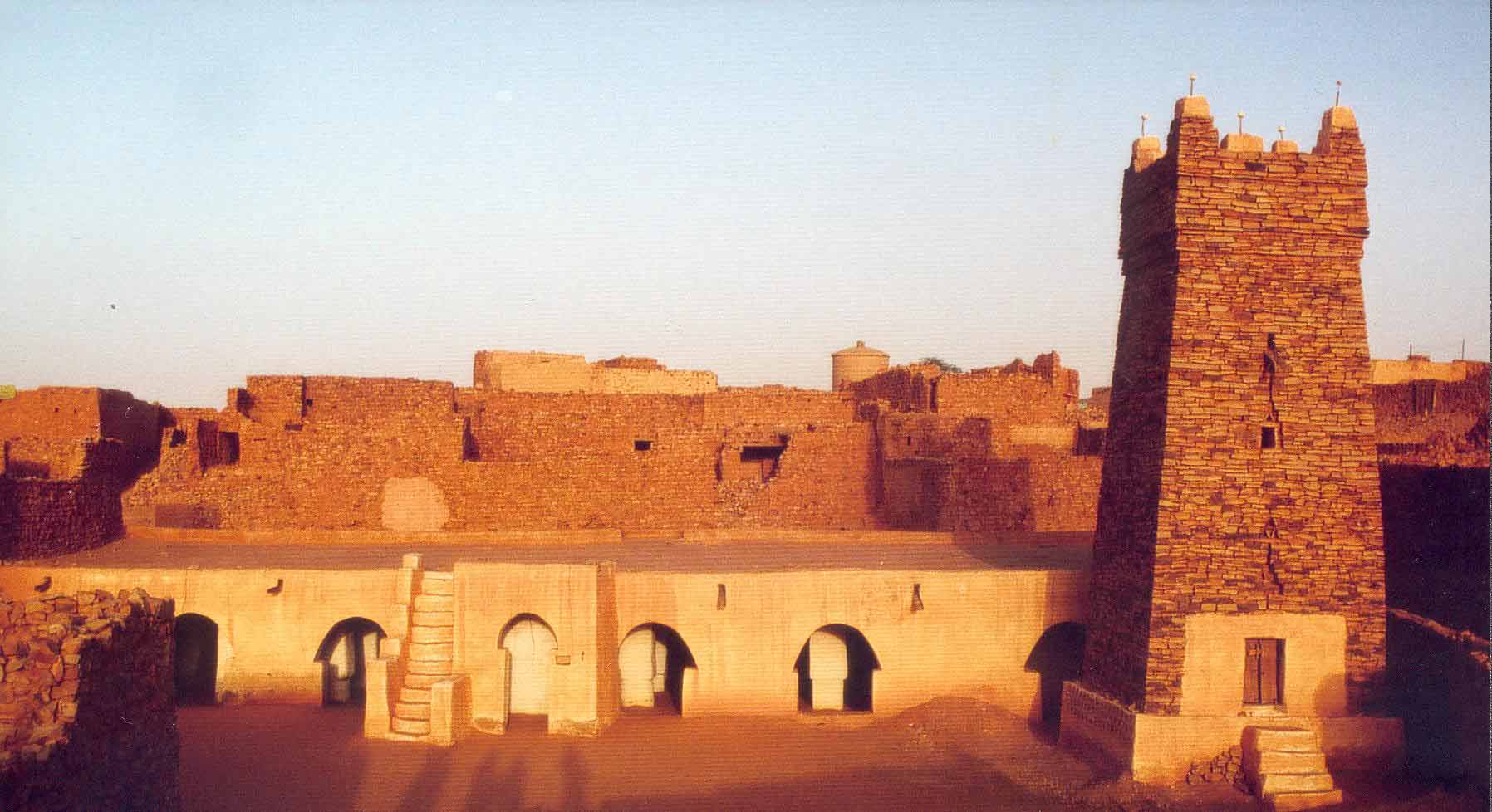"The Arab is backward; his part of the world is underdeveloped."
When I was young, I was always intrigued by the term “Arab World.” Like many Arab children, I was raised hearing this word and learning that it described the place that I call home. For several years, I was naive in thinking of the “regular” world and the “Arab” world to be physically separate and distinct. As I grew older, I realized that this physical separation might not necessarily exist. What I came to realize exists, however, is the psychological and cultural divide between these two worlds.
Right after the demise of the Ottoman empire after WWI, most of the Arab world was carved up, mostly by British and French colonizers. Resources and people were exploited. Colonial states gained more hegemony and power and colonies suffered a loss of language, culture and capital. In Algeria, more than one million people died in the revolution that led to the country's decolonization in 1962. In the Middle East, new states emerged as a result of the colonial divide of land (Lebanon and Israel are examples).
The railroads that my local train runs on everyday, the language of instruction in my school and even my favorite “Tunisian” dessert are all French. The people who occupied my country for 75 years, killed my people and exploited our resources are also French.

"Following the war that pushed 1,000,000 of his people into homeless squalor... he (the Arab) has come to understand the liability of illiterate families and their unproductive farms."
I come from the southern part of Tunisia where most of my extended family still lives. I used to spend so much time over the summers with my grandmother who, I remember, always wore beautiful Koftans and Malias (or what we call now “traditional clothing”). My grandmother never went to school when she was young and I always wondered how she navigated life, as education has always been a very important part of our small, suburban family. She never seemed to be lacking knowledge and I always learned more from her than anyone else. When she was in her 80s, she enrolled in a school for the elderly and learned how to read and write.
The term “Arab” has held different meanings throughout time. It started out as a termdescribing “Bedouin tribes of the Arabian peninsula.” Toward the end of the 19th century, it was used as a term referring to Arabic-speaking states and peoples. As a result, the term “Arab World” is not as "Arab" as we think it is. “Arab” countries were home to a plethora of civilizations and have undergone several conquests, occupations and wars that have diversified their populations—not to forget the native peoples of these countries like the Imazighen in North Africa. In Morocco, around 40 percent of the population is Amazigh. Educating the public about these identities was never in the interest of colonial powers and neither was it in the interest of post-colonial dictators.
Even though my grandmother was Muslim, she had several tattoos. She does not remember how or where she got them. But, she knows that the symbols tattooed on her Arab self are Amazigh.
"He (the Arab) admits the incompatibility of feodary and progress."
The first protest that I have ever marched in was in 2009 on the anniversary of the Palestinian Nakba (a remembrance day of the systematic expulsion of Palestinians from their homes and lands in 1948 by the Israeli forces). I was only 13. The Palestinian conflict meant a lot to me (especially after recognizing my privilege as an Arab living in a fairly stable country), so I saw it as my responsibility to advocate for the rights of fellow Arabs who continue to be oppressed and displaced. For this year’s anniversary of the Nakba, I wore a Palestinian bracelet that I could tell made many of my fellow American classmates uncomfortable. I, then, silently watched the death tolls of Palestinians in Gaza increase as president Trump delivered his words of praise to Israel following the inauguration of the new U.S. Embassy in Jerusalem: Al Quds. In 9 years, lots has changed and the situation of Palestinians has certainly gotten worse.
The "Arab world" has gone through a lot. Decades of economic, political and cultural proliferation were followed by decades of instability, war, conflict and occupation. The transitional phase between these two different stages were colonialism, post-colonialism, neo-colonialism and western imperialism. These mechanisms have pushed Arab countries into continuous economic, political and cultural dependency. International systems remain structured unequally so that rich and powerful countries are able to remain that way and continue controlling the less powerful and less rich. Giving certain countries like the U.S. the power to utilize vetoes at the UN Security Council and therefore allied states like Israel the ability to violate international law governing its expansion into the Palestinian territories are examples of this inequality.
A few minutes after the protest started, we found ourselves chased by the police. As I was advocating for the protection of other people, I found myself in danger. The Tunisian police that I thought would always protect me were the ones that went after me.

"He (the Arab) has noted the relationship of feudalism to ignorance, poverty to feudalism, foreign control to poverty and ignorance to foreign control."
Displacement in the countries comprising the “Arab World” comes in different forms. The most detrimental of all is the displacement of the Arab identity. Arabs not only struggle with placing their identity within the ethnic and linguistic diversity of the region that they occupy, but also wrestle with the colonial debris that has transformed so many of the facets of their identity and culture. The fall of the movements for Arab nationalism marked the loss of the only hope to reconstruct the Arab self and created a huge void in the collective Arab identity. With the current dictator regimes and imperialist propaganda, this void is growing and is being joined by a load of post-Arab Spring disappointment at the inability of the Arab to be free.
As an Arab, I often feel helpless. Our voices are often not heard either in our countries, or outside of them. We stand dispersed, oppressed and silenced. Yet, we remain always demonized.

The four section headlines (in bold) above are quotes from a UNDP pamphlet issued in 1953 blaming the displacement of Palestinians in 1948 on what was seen as the “deficient” characteristics of the Arab identity. Such skewed and condescending view of the Arab is unfortunately spread out across the world. It is even being ingrained in Arabs themselves through channels of national oppression and imperialism. Being Arab is neither bad, nor inherently problematic. The extent to which this identity extends is broad as I showcase through my personal reflections and thoughts. It involves conflicting and opposing perspectives all entangled within one entity, which, at times, can be quite paralyzing and deconstructive. As a result, the mobility of the Arab individual is often restrained, in times when a collective stand against common issues is most needed. Only reckoning with what it means to be Arab could help revive and reconstruct this identity in relationship to others, thus decolonizing and empowering the Arab mind at both an individual and a collective level.
